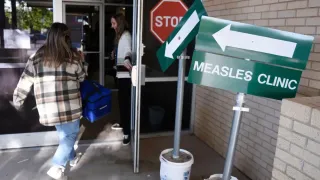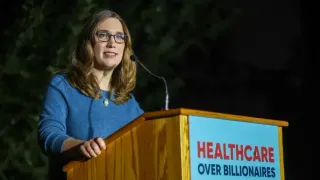April 28, 2015
Viola Davis to Star as Harriet Tubman in HBO Movie
Jason St. Amand READ TIME: 1 MIN.
"How to Get Away with Murder" star Viola Davis will play Harriet Tubman in a HBO movie about the abolitionist hero.
HBO said Monday that the project is based on the biography "Bound for the Promised Land: Harriet Tubman," by historian Kate Clifford Larson.
Tubman was born into slavery in Maryland, escaped in 1849 and led countless slaves from the South to freedom along the Underground Railroad.
An air date for the untitled project and other cast members were not announced.
The Underground Railroad, a network of secret routes and safe houses for escaped slaves, is the subject of other announced TV projects.
They include a Stevie Wonder-produced miniseries for NBC, "Freedom Run," and a WGN America drama, "Underground," starring Christopher Meloni and Jurnee Smollett-Bell.






